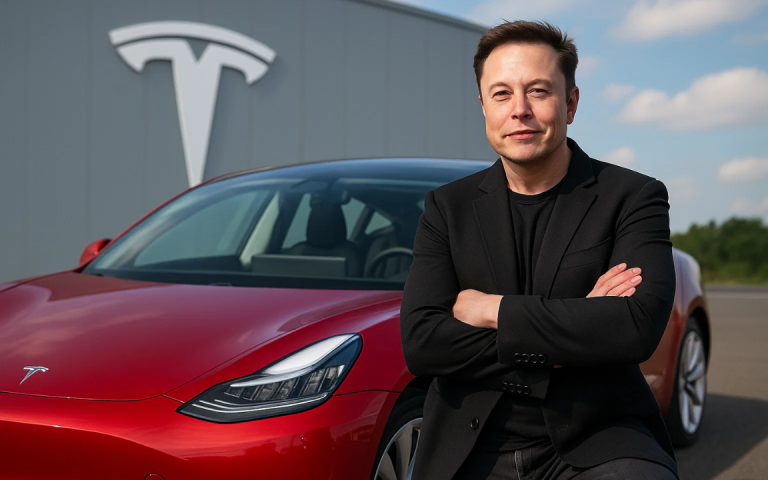Tesla shareholders have handed Elon Musk a historic vote of confidence, and a path to a possible $1 trillion payday, as the company doubles down on AI, robotaxis, and chip ambitions.
When applause rippled through Tesla’s Austin shareholder meeting on November 6, investors had just approved the most audacious pay package in corporate history.
Over 75% of voting shares backed Musk’s compensation plan, worth up to $1 trillion if Tesla hits extraordinary milestones over the next decade.
The approval sent the room into cheers. “I super appreciate it,” Musk told shareholders, his gratitude genuine but understated for a man potentially about to become the world’s first trillionaire.
If he secures all 12 tranches of the stock award, his earnings could equal $275 million per day, the largest executive pay deal ever recorded.
The vote reshapes Tesla’s power structure and bankrolls Musk’s transformation of the carmaker into an AI and robotics powerhouse.
The move is expected to have seismic implications for autonomous driving, domestic chip production, and how much concentrated authority shareholders will tolerate at a megacap public company.
Anointing a CEO, or concentrating power?
Behind the applause lies a governance story that’s prompted serious questions about unchecked executive control.
The pay package is expected to increase Musk’s voting stake from roughly 15% to around 25%, granting him near-majority control and the ability to shape Tesla’s direction almost unilaterally.
Major proxy advisors Glass Lewis and ISS both recommended voting against the deal, citing concerns about dilution and concentrated power.
Norway’s sovereign wealth fund, one of the world’s largest pension funds, publicly opposed it on “key person risk” grounds.
Yet that institutional pushback proved powerless against retail investor enthusiasm and the board’s implicit threat: reject this deal and Musk might walk.
For supporters, the math is straightforward: if Tesla’s stock rises 466% to hit the $8.5 trillion valuation target, shareholders win regardless of Musk’s payday.
But critics argue that staking a $1.54 trillion company’s future on one leader with multiple outside ventures and a history of missed timelines violates basic governance principles.
The board’s own filing suggested Musk had raised concerns about continuing as CEO without greater control assurances, turning the vote into a referendum on his indispensability rather than a merit-based compensation review.
Still, shareholders voted yes, effectively answering: in this moment, betting on Musk’s vision matters more than distributing power.
From EVs to robotaxis, China and the chip race
The real significance of the vote isn’t the money; it’s the mandate it grants Musk to pursue an audacious AI and robotics roadmap that would reshape Tesla’s business entirely.
China represents both a regulatory hurdle and a growth goldmine.
Musk expects the country to grant Full Self-Driving full approval around February or March 2026, unlocking massive revenue from autonomous taxi services and fleet operations.
That timeline matters because China has become Tesla’s second-largest market and a critical testing ground for autonomous driving policies.
Meanwhile, Optimus, Tesla’s humanoid robot, represents an even bigger bet. The company plans to manufacture 5,000 to 10,000 units this year, ramping to 50,000 by 2026, with ambitions to scale to millions by decade’s end.
Achieving that scale requires extraordinary chip capacity that doesn’t yet exist.
Tesla signed a $16.5 billion deal with Samsung to produce next-generation AI6 chips at a new Texas facility, while TSMC handles the current AI5 generation.
Musk has even hinted that Tesla might build its own chip fabrication plant if external suppliers can’t meet demand.
The trillion-dollar compensation plan, then, isn’t just about rewarding past performance; it’s about funding and incentivizing a man to execute one of the most ambitious technology transitions in automotive history: turning Tesla from a carmaker into an AI and robotics company, one chip and one robot at a time.
The post After $1 trillion pay vote: what Tesla’s Musk-centric governance means for AI ambitions appeared first on Invezz

